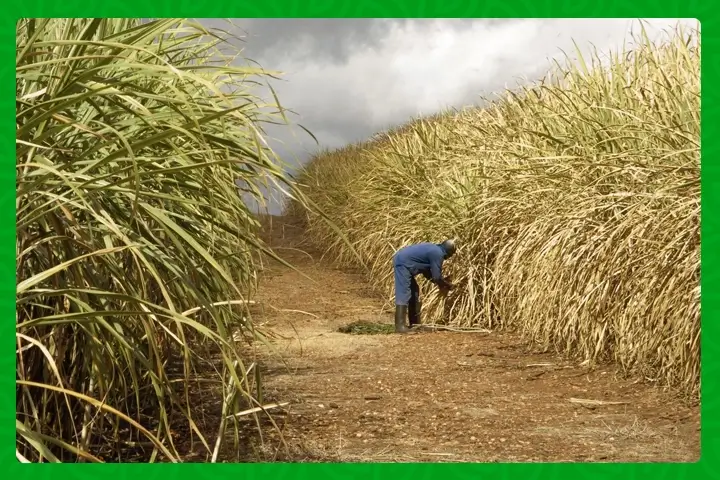
Cameroon’s Largest Sugar Producer Faces Crisis as Protests Turn Chaotic
In a devastating turn of events, Cameroon’s Sugar Corporation (Sosucam) has suffered massive losses after 150 hectares of sugar cane plantations were set ablaze during a violent workers’ strike in Nkoteng on February 4, 2024. The situation quickly spiraled out of control, resulting in the tragic death of a protester, injuries to several individuals—including police officers and gendarmes—and the destruction of vital farmland.
The chaos erupted as Sosucam employees took to the streets, demanding better wages and improved working conditions. What began as a peaceful demonstration soon escalated into an all-out riot, leaving behind a trail of destruction that could significantly impact Cameroon’s already fragile sugar supply.
A Blow to Cameroon’s Sugar Industry
Sosucam, which owns 25,000 hectares of plantations across Mbandjock, Nkoteng, and Lembe-Yezoum, is Cameroon’s largest sugar producer. The company typically produces between 100,000 and 130,000 tons of sugar annually, but this recent disaster threatens to further destabilize production at a time when domestic demand already far exceeds supply.
With Cameroon’s annual sugar consumption nearing 300,000 tons, the country has increasingly relied on imports to fill the gap. In the first half of 2024 alone, Cameroon imported 105,400 tons of sugar, up 31,000 tons from the previous year, costing the country a staggering CFA42.8 billion.
Now, with part of Sosucam’s sugar cane fields in ashes, the country’s dependence on imports is expected to worsen, further deepening its trade deficit and driving up sugar prices.
Sosucam’s Silence and Leadership Changes Amid Crisis
Despite the severity of the situation, Sosucam has yet to release an official statement on the destruction of its plantations. The crisis comes at a turbulent time for the company, occurring just over a week after Jean-Louis Liscio was appointed as its new CEO.
With a workforce of 8,000 employees, an annual payroll of CFA14 billion, and revenue averaging CFA60 billion, Sosucam plays a crucial role in Cameroon’s economy. However, the latest unrest raises serious concerns about labor relations and the company’s ability to maintain production.
The Ripple Effect: Economic and Social Consequences
The destruction of Sosucam’s plantations is expected to trigger a chain reaction of economic and social challenges, including:
- Reduced Sugar Production → Higher dependence on expensive imports
- Possible Job Losses → Thousands of workers rely on Sosucam for their livelihoods
- Higher Sugar Prices → A direct impact on consumers and businesses that depend on sugar
- Increased Trade Deficit → The nation already spends billions on sugar imports
What’s Next for Cameroon’s Sugar Sector?
The events at Sosucam highlight deep-seated issues in the sugar industry, including labor dissatisfaction, rising production costs, and supply shortages. Moving forward, the Cameroonian government and Sosucam’s leadership must take swift action to:
✅ Address workers’ grievances through meaningful negotiations and fair wages
✅ Enhance security at plantations to prevent further destruction
✅ Boost local sugar production to reduce reliance on imports
✅ Implement long-term solutions for sustainable industry growth
As tensions continue to simmer, the future of Cameroon’s sugar industry hangs in the balance. Will Sosucam recover from this crisis, or is this just the beginning of deeper troubles for the nation’s sugar supply?
Stay updated with the latest farming tips and agriculture industry news from Africa by subscribing to our newsletter. Don’t miss out on valuable insights and updates. Follow us on Twitter, LinkedIn, and Facebook to join our farming community and stay connected with us.


















